mind
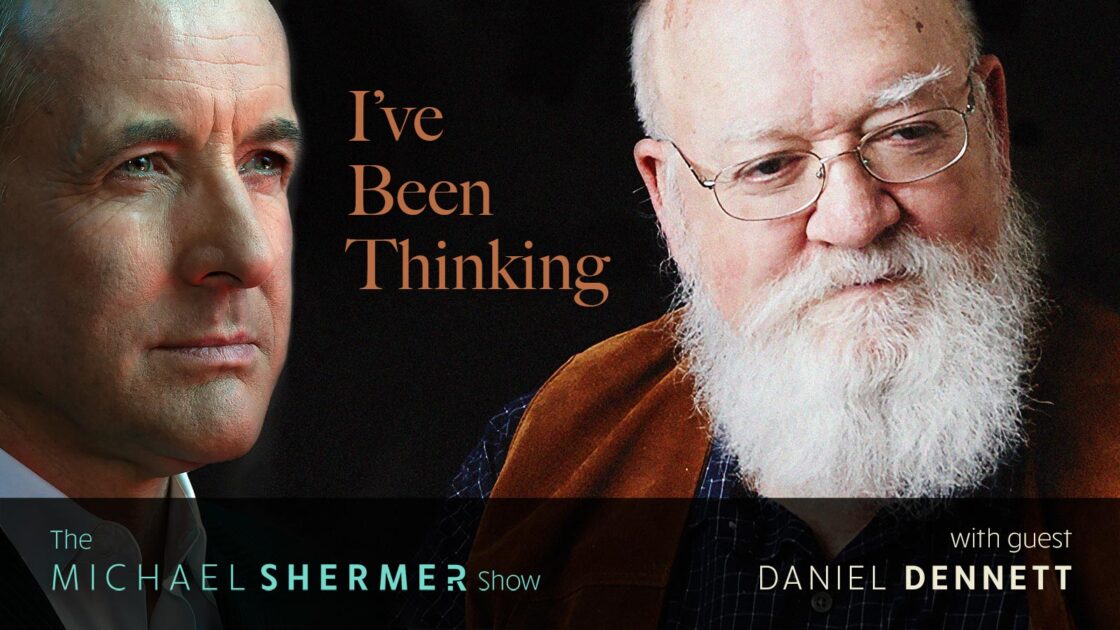
Preeminent philosopher and cognitive scientist, Daniel Dennett has spent his career considering the thorniest, most fundamental mysteries of the mind. Do we have free will? What is consciousness and how did it come about? What distinguishes human minds from the minds of animals? Dennett’s answers have profoundly shaped our age of philosophical thought. In his autobiographical I’ve Been Thinking, he reflects on his amazing career and lifelong scientific fascinations.
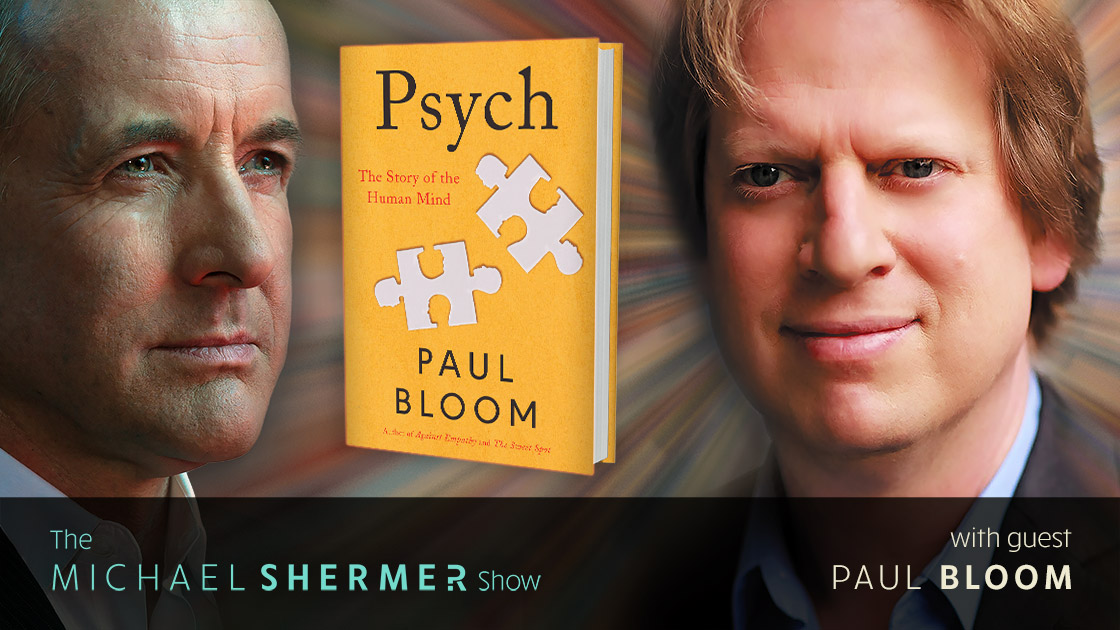
How does the brain — a three-pound gelatinous mass — give rise to intelligence and conscious experience? Was Freud right that we are all plagued by forbidden sexual desires? What is the function of emotions such as disgust, gratitude, and shame? Renowned psychologist Paul Bloom answers these questions and many more in this conversation based on his riveting new book about the science of the mind: Psych.
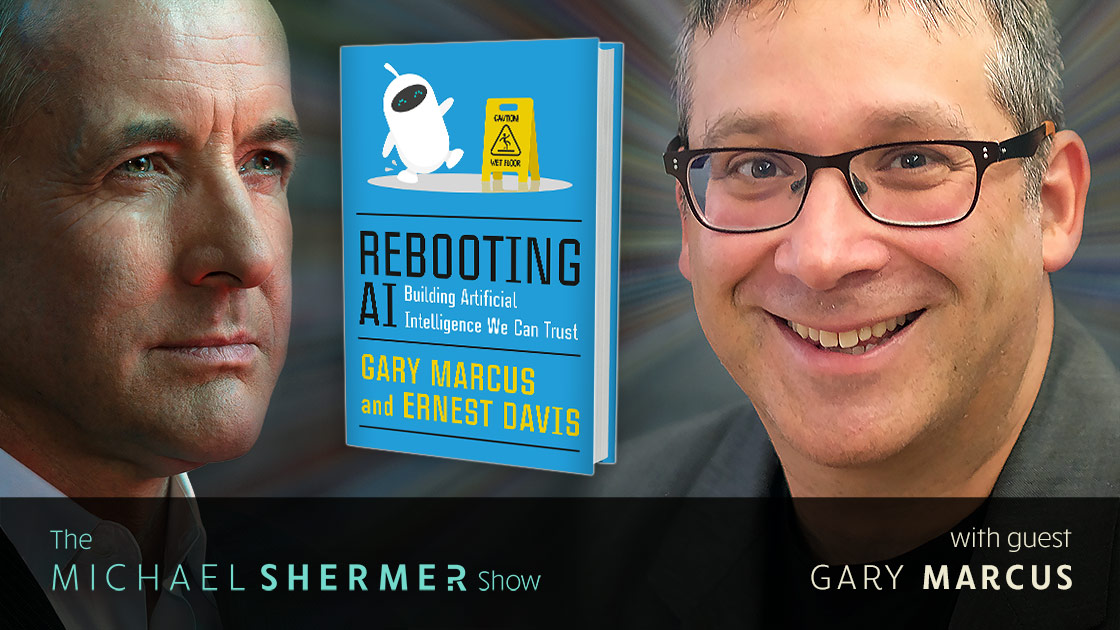
Shermer and Marcus discuss: why AI chatbot LaMDA is not sentient • “mind”, “thinking”, and “consciousness”, and how do molecules and matter give rise to such nonmaterial processes • the hard problem of consciousness • the self and other minds • How would we know if an AI system was sentient? • Can AI systems be conscious? • free will, determinism, compatibilism, and panpsychism • language • Can we have an inner life without language? • How rational or irrational…
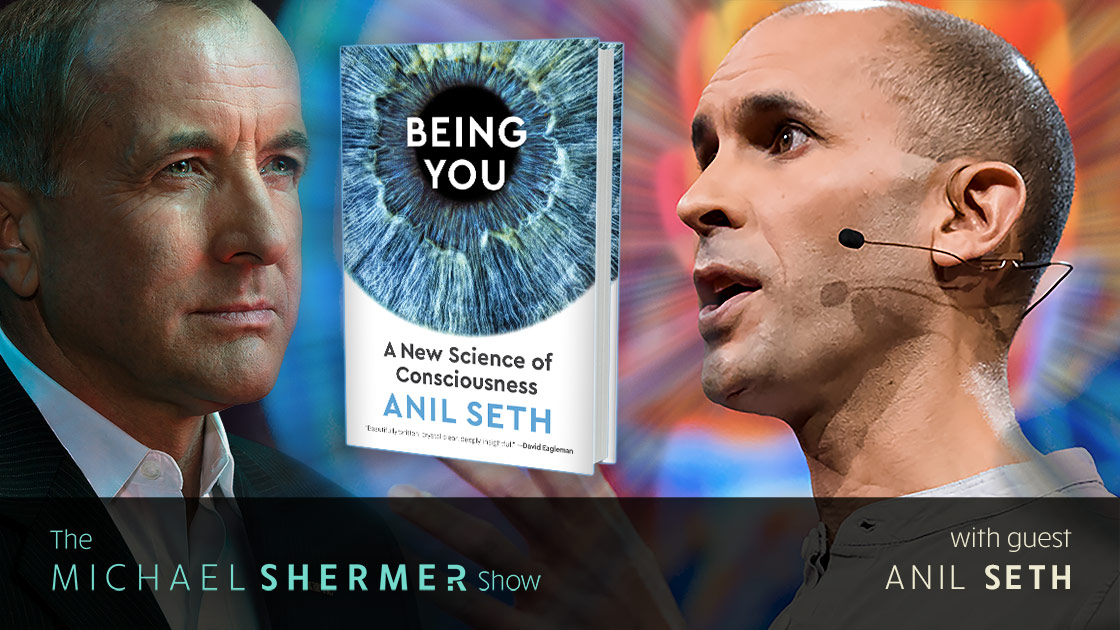
Shermer and Seth discuss: consciousness • controlled hallucinations • the self and other minds • Where does consciousness go during general anaesthesia? After death? • Are we living in a simulation that itself is inside a simulation? • Does Deep Blue know that it beat the great Gary Kasparov in chess? • Does Watson know that it beat the great Ken Jennings in Jeopardy!? • Is Data on Star Trek sentient, conscious, and with feelings? • Can AI systems be…
Michael Shermer speaks with computational neuroscientist, Ogi Ogas, about his unified account of the mind that explains how consciousness, language, self-awareness, and civilization arose incrementally out of chaos, and how leading cities and nation-states are developing “superminds,” and perhaps planting the seeds for even higher forms of consciousness.
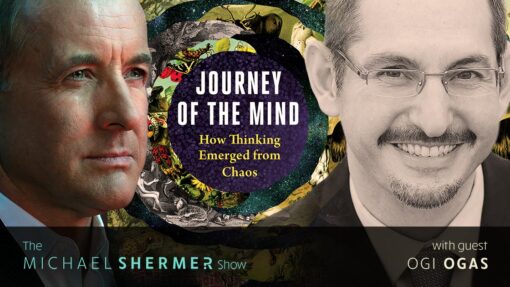
Michael Shermer speaks with computational neuroscientist, Ogi Ogas, about his unified account of the mind that explains how consciousness, language, self-awareness, and civilization arose incrementally out of chaos, and how leading cities and nation-states are developing “superminds,” and perhaps planting the seeds for even higher forms of consciousness.
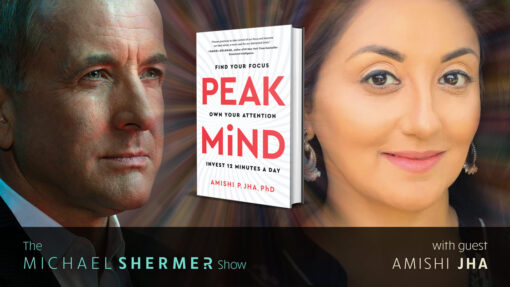
In episode 232, Michael Shermer speaks with neuroscientist and professor of psychology, Amishi Jha, about how to achieve Peak Mind, based on her book Peak Mind: Find Your Focus, Own Your Attention, Invest 12 Minutes a Day.
In episode 232, Michael Shermer speaks with neuroscientist and professor of psychology, Amishi Jha, about how to achieve Peak Mind, based on her book Peak Mind: Find Your Focus, Own Your Attention, Invest 12 Minutes a Day.
In episode 196, Michael speaks with Annie Murphy Paul as she explodes the myth that the brain is an all-powerful, all-purpose thinking machine that works best in silence and isolation. Paul tells the stories of Jackson Pollock, Charles Darwin, Jonas Salk, Friedrich Nietzsche, Watson and Crick, among others — who have mastered the art of thinking outside the brain.
In episode 196, Michael speaks with Annie Murphy Paul as she explodes the myth that the brain is an all-powerful, all-purpose thinking machine that works best in silence and isolation. Paul tells the stories of Jackson Pollock, Charles Darwin, Jonas Salk, Friedrich Nietzsche, Watson and Crick, among others — who have mastered the art of thinking outside the brain.
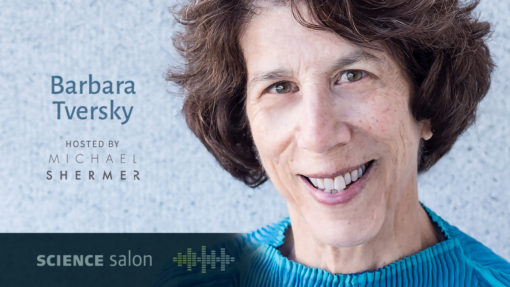
In Science Salon # 69 eminent psychologist Dr. Barbara Tversky offers a major new theory of human cognition: movement, not language, is the foundation of thought.
Imagine an intelligent bat contemplating the mind-body problem, name of Tim Nigel.1 Nigel has noticed that humans have an auditory sense not possessed by bats (of his species): they can hear various pitches. This enables them to appreciate music (unlike Tim and his conspecifics) and also to have other types of auditory experience not available […]
In Science Salon # 29, Michael Shermer talks with philosopher Colin McGinn about his public criticism of Shermer’s latest Scientific American column on the mysteries of consciousness, free will, and God.
Software programmer and technical writer Peter Kassan avers that a return to dualism is not justified. This article appeared in Skeptic magazine 22.4 (2017). About the image below: An illustration of the Cartesian theater. A tiny person sits in a movie theater inside a human head, watching and hearing everything that is being experienced by […]
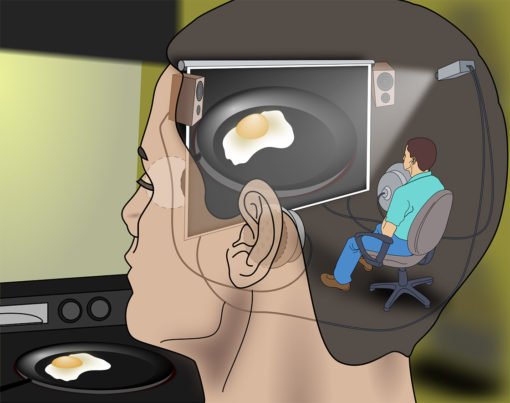
Software programmer and technical writer Peter Kassan avers that a return to dualism is not justified. This article appeared in Skeptic magazine 22.4 (2017).
In this week’s eSkeptic, we present Dr. Michael Shermer’s review of The Brain and the Meaning of Life by Paul Thagard.
Does God Have a Future? Deepak Chopra and Jean Houston debate the question with Michael Shermer and Sam Harris.
This debate between Deepak Chopra and Michael Shermer came about after the widely read and referenced debate the two had last year on the virtues and value of skepticism. Deepak and Michael thought it would be stimulating to have a debate on the topic. Michael read Deepak’s book and goes first in the debate, offering his assessment of the “proofs” presented in Deepak’s book, then Deepak responds.
Our 2008 conference at Caltech, on the question of origins, featured lectures by Leonard Susskind, Paul Davies, Sean Carroll, Donald Prothero, Christof Koch, Stuart Kauffman, Kenneth Miller, Nancey Murphy, Michael Shermer, Hugh Ross, Victor Stenger, and a performance by Mr. Deity.
In this week’s eSkeptic, David Ludden reviews by Cordelia Fine‘s book entitled A Mind of its Own: How Your Brain Distorts and Deceives.
NEXT →
















